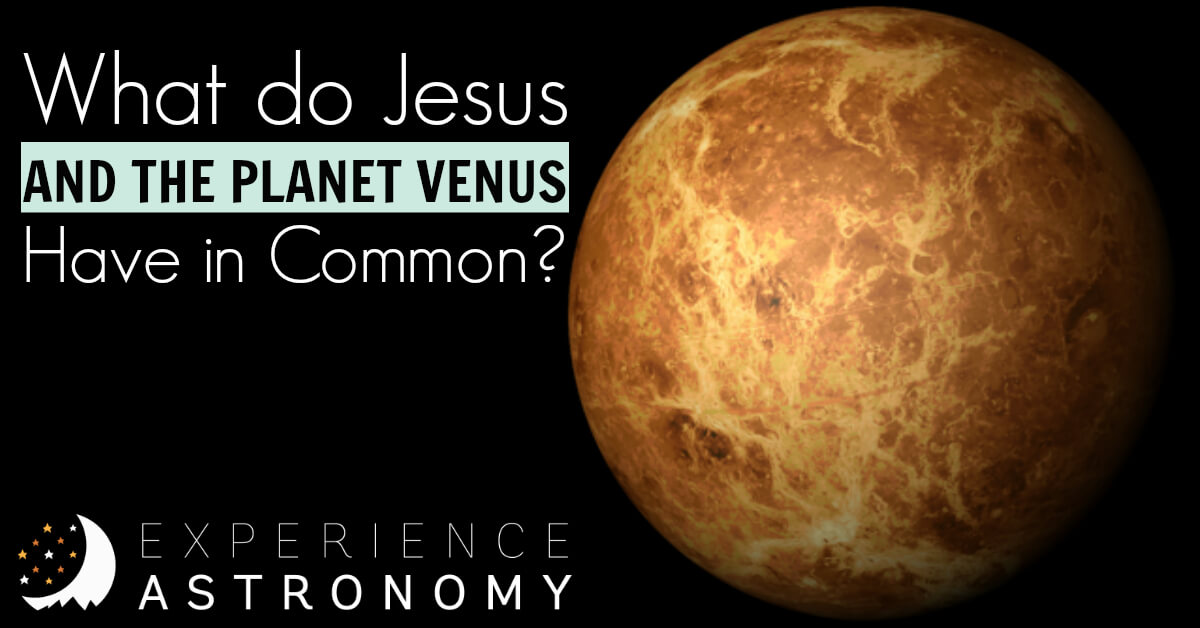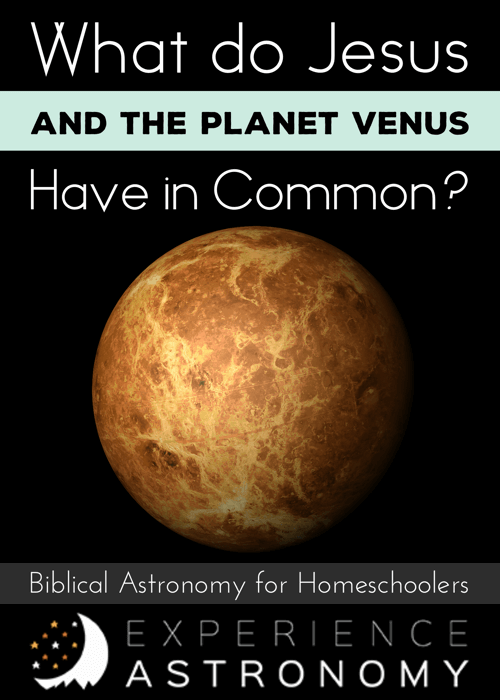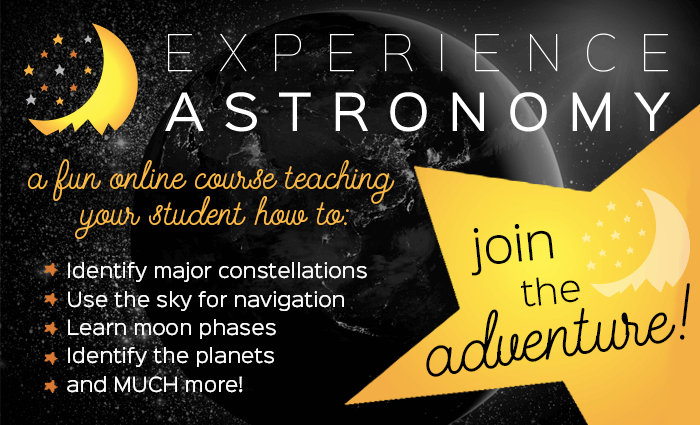What do Jesus and the planet Venus have in common? That probably sounds like an odd question, but as you’ll see in the video, it’s the Bible that makes this comparison…
The Bible is full of fascinating insights when it comes to astronomy because astronomy was part of the daily lives of those who lived in the ancient world. Ancient people—including God’s people—organized their lives around the rising and setting of the sun, the phases of the moon, and the seasonal appearances of the stars.

Consider just a few of the Scriptural references to astronomy…
- Genesis 1:14-19 – This text is all about the creation of the sun, moon, and stars. God tells us he did this for 5 reasons: (1) giving light on the earth, (2) separating day from night, (3) marking the seasons and rhythms of life (like planting, harvesting, and celebrating), (4) marking days and years (making calendars to organize our lives), and (5) creating “signs” in the sky (probably a reference to constellations that help us to navigate and help us mark the different seasons of the year).
- Genesis 15:5-6 – God mades Abram a great promise that his descendants will number more than all the stars in the sky. There are more than 9,000 stars visible to the naked eye around the globe, not counting the band of the Milky Way which is billions of stars very far away in our galaxy.
- Leviticus 23 – This is a catalogue of Israel’s special celebrations and gatherings. The entire Hebrew calendar is “lunisolar”: the moon phases determine when months begin and end, and years are calculated based on the seasons. Knowing these sky rhythms helps us to understand the rhythms of the Hebrew calendar.
- Job 9:1-12 – Job talks about how God is beyond understanding because of his great power. Among other things, he mentions three of God’s constellations: Orion, the Pleiades, and Ursa Major.
- Job 38:31-33 – In God’s rebuke the Job, God names a number of constellation groups, showing how He is the only one who has the wisdom and power to run the universe. God mentions the Pleiades, Orion, Ursa Major, and the Mazzaroth (the Zodiac).
- Psalm 19:1:1-6 – The psalm celebrates how the heavens “declare the glory of God,” communicating to the whole Earth about God’s greatness. The sun also has a “tent” in the sky, speaking how the sun changes position in the sky against the background stars from month to month.
- Amos 5:1-17 – In this poem foretelling the destruction of Israel, God’s chief demonstrations of His power, proving to Israel that He is able to bring about this calamity, are (1) His ability to make the rain to fall where He wants, (2) His ability to make the sun rise and set, and (3) the creation of the constellations the Pleiades and Orion.
- Matthew 2:1-12 – While scholars are divided on what the Star of Bethlehem actually was, it guided the magi from the East to find the Messiah, and stood as a testimony in the sky that a new King had been born.
- James 1:17 – God is called the Father of lights (the Creator of heavenly lights like the sun, moon, and stars). Even though these lights are in constant flux—flickering, waxing, waning, changing positions—God is unchangeable. Only an all-powerful, unchanging God could create these changing heavens.

Your Kids Can Learn Astronomy!
If your child loves learning about the planets, they will love Experience Astronomy.
We cover so much more than the planets in these full-school-year online courses. Students learn about…
- How to identify major constellations
- Ways astronomy connects to fascinating stories in history, literature, folklore, archaeology, and the Bible
- The amazing world of interstellar space—stars, galaxies, black holes, and exoplanets
- How ancient people used astronomy to tell time, create calendars, and navigate the globe
Best yet: I do all the teaching for you through fun, engaging online videos and hands-on activities.

